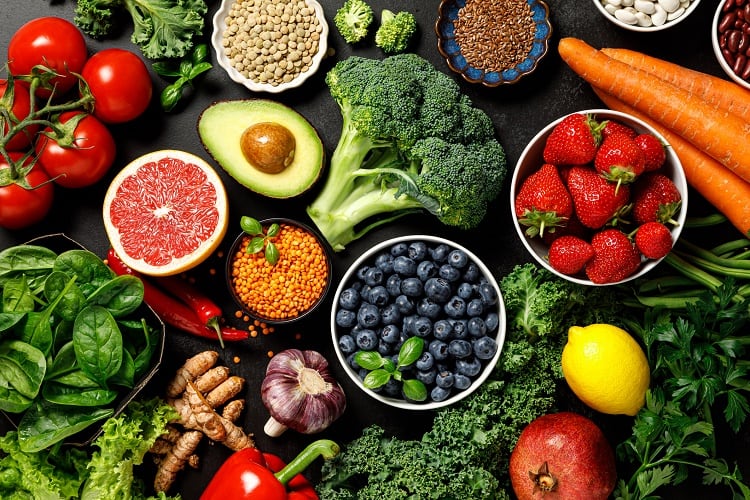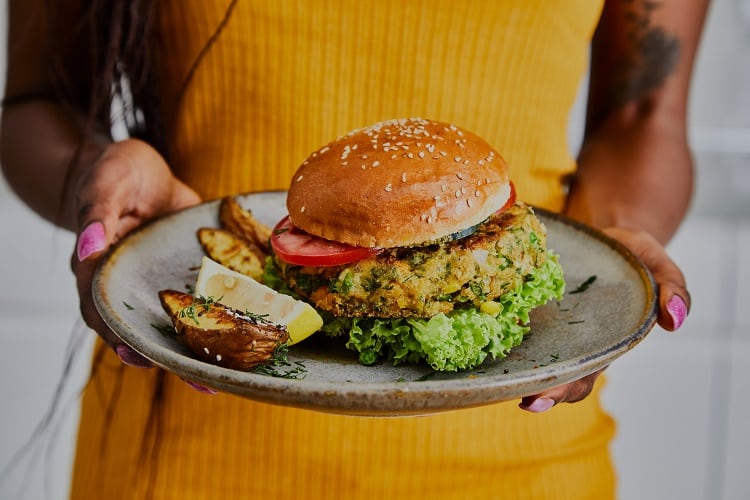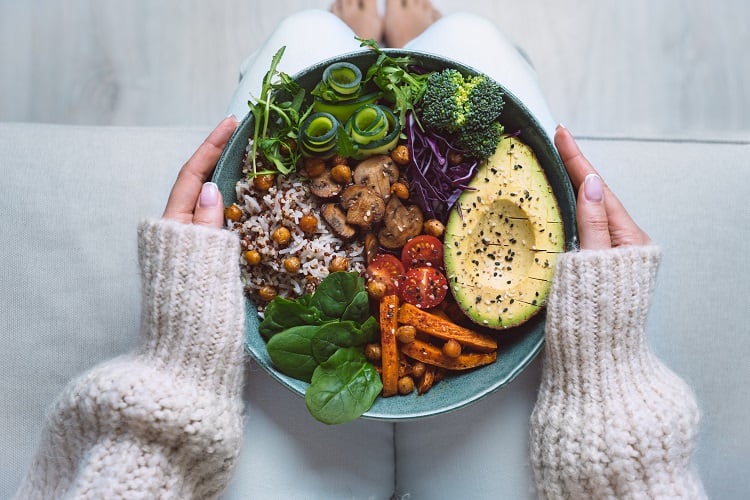From adorable sleepy snuffles to something more akin to the low rumble of an earthquake, snoring is commonly experienced in sleep. Unfortunately, it only bothers people around the sufferer, as the sufferer themselves is blissfully unaware in sleep. However, snoring can be a symptom of a more dangerous condition, obstructive sleep apnoea (OSA). Could diet be a contributing factor to this nocturnal behaviour and, more particularly, could a plant-based diet help to prevent it?
What is obstructive sleep apnoea?
Obstructive sleep apnoea (OSA) is a relatively common condition where the walls of the throat relax and narrow during sleep, interrupting normal breathing.
People with obstructive sleep apnoea are often prone to snoring loudly, their breathing starts and stops during the night, and they may wake up several times. As well as the inevitable tiredness, this interrupted sleep can lead to an increased risk of high blood pressure, stroke, heart disease and type two diabetes.
Could a plant-based diet prevent sleep apnoea and stop snoring?
An estimated 45% of adults snore occasionally, while 25% snore regularly, that’s according to figures from Johns Hopkins Medicine in the United States.
“You’re more likely to snore if you’re overweight, are a middle-aged or older man, or are a postmenopausal woman,” said a spokesperson for Johns Hopkins Medicine. They go on to say that, “these night noises seem to worsen with age.”
But could specific dietary factors also play a role in the whether people snore or not?
A recent study, published in ERJ Open Research, has found that people who eat a healthy, plant-based diet, high in vegetables, fruit, wholegrains and nuts, are less likely to suffer from obstructive sleep apnoea (OSA).
However, it also found that those who consume an unhealthy plant-based diet, high in fat, sugar and salt, face an increased risk of developing obstructive sleep apnoea.
The study, which included 14,210 people, is one of first to investigate the link between plant-based diets and obstructive sleep apnoea, with researchers concluding its findings suggest that eating a healthy, plant-based diet may help prevent or treat obstructive sleep apnoea.
“Risk factors for obstructive sleep apnoea may stem from genetics or behaviour, including diet,” explains Dr Yohannes Melaku from Flinders University in Adelaide, Australia. “Previous research has primarily focused on the impact of calorie restriction, specific dietary elements, and weight loss. There’s a gap in our knowledge of how overall dietary patterns affect OSA risk. With this study, we wanted to address that gap and explore the association between different types of plant-based diets and the risk of OSA.”

How was the study conducted?
The 14,210 participants were asked to detail everything they had eaten in the 24 hours prior to the study. Researchers then categorised this information according to whether people were eating a healthy plant-based diet, including whole grains, fruits, vegetables, nuts, legumes, tea, and coffee, an unhealthy plant-based diet, including refined grains, potatoes, sugar-sweetened drinks, sweets, desserts, and salty foods, or a diet high in animal foods, including animal fat, dairy, eggs, seafood and meat.
Participants also answered a questionnaire designed to gauge whether they are likely to be suffering from obstructive sleep apnoea.
The research team found that people with diets highest in plant-based food were 19% less likely to be suffering with obstructive sleep apnoea, compared with those eating diets lowest in plant-based food. Those eating a predominantly plant-based diet were also at a lower risk. However, people eating a diet high in unhealthy plant-based foods were at a 22% higher risk, compared to those eating low amounts of these foods.

Further research required
“This research doesn’t tell us why diet is important, but it could be that a healthy plant-based diet reduces inflammation and obesity,” explains Dr Melaku. “These are key factors in OSA risk. Diets rich in anti-inflammatory components and antioxidants, and low in harmful dietary elements, can influence fat mass, inflammation, and even muscle tone, all of which are relevant to OSA risk.”
The research team is now planning to investigate the links between eating ultra-processed foods and obstructive sleep apnoea. They also intend to study the interaction between diet and obstructive sleep apnoea in the longer term.
Source: Plant-based and vegetarian diets are associated with reduced obstructive sleep apnoea risk
Published online: 20 February 2024
DOI: https://openres.ersjournals.com/content/10/2/00739-2023
Authors: Yohannes Adama Melaku, Lijun Zhao, Robert Adams, Danny J. Eckert





